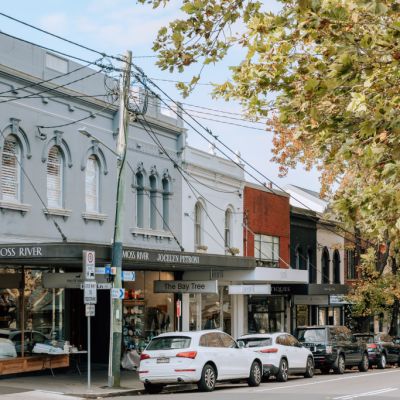‘Terrible mistakes’: What not to compromise on in your property search
House hunters are increasingly compromising on their property wish lists in a competitive market, but experts warn against making some key trade-offs to avoid buyer’s remorse.
At a time when demand for homes massively outstrips the number for sale, and the alternative to homeownership is a brutal rental market, buyers can easily make too many compromises in their haste to buy, which they could later regret.

Potential home buyers have less choice than this time last year. The number of new listings in May across Australia was 26 per cent below the same time last year, on CoreLogic data, and 13.1 per cent below the five-year average, as owners hesitate to sell amid the market’s uncertain outlook.
Emma Bloom, director of Melbourne buyers’ agents Morrell & Kohen, said home buyers must work out what they can and can’t go without, before starting their search.
“It’s a gruelling process and when stock is low and buyers are desperate, that’s the classic time to make terrible mistakes,” she said.“I always advise clients to … relax before making the final decision.”
The first thing buyers should never compromise on is budget, advises First National Real Estate chief executive Ray Ellis. Buyers should not spend more than they can afford.
“The purpose of your home is to help you lead a better life,” he said. “So if the purchase ends up affecting your financial health, and you’re worrying about every mortgage payment, then it is never worth it. That’s especially if you’re unable to keep up and are forced to sell it, and then make a big loss.”
‘It’s a gruelling process and when stock is low and buyers are desperate, that’s the classic time to make terrible mistakes.’
But at the same time, buyers should not limit their budget more than needed.
Melbourne buyers’ advocate Cate Bakos, president of the Real Estate Buyers Agents’ Association, said: “You’re better off spending as much money as you can rather than trying to save some of your budget for wriggle room.
“It’s more important to buy something you’re comfortable in, than living with a sense of regret. And that money saved will feel insignificant in a year or two’s time.”
Location is another factor buyers should be cautious about compromising on.
Sydney buyers’ agent Michelle May said those hellbent on a certain suburb, where they could not afford the property they wanted, should consider settling for a smaller home or an apartment.
“But never compromise to the extent where you buy on a massive main road because, as well as affecting your lifestyle, it’ll also impact the capital growth of that property when you come to sell it,” she said.
“If that’s all you can afford in your chosen suburb, then you’d be better off looking for a quality location in a different suburb.”
She also warns against purchasing near noisy schools, above commercial tenants – who might change – or near power stations, to try break into a suburb at a more affordable price point.
“But under a flight path is OK. A lot of people don’t mind that at all; they’re used to it,” she said.
Alternatively, buyers should explore neighbouring suburbs that may have similar amenity, or are close to where they like to socialise. Such suburbs may be more affordable, and could be due for new infrastructure that will boost their future appeal.
Bakos said buyers should also carefully consider the size of the home they needed, noting there was many a redundant study, as more homeowners returned to office work.

While buying a home that was too small could prove a constant irritant, buyers could consider properties that may have spaces or layouts that are not ideal, but can be changed.
“You can always compromise instead on how a property has been styled or renovated. If it’s liveable and comfortable now, you can always change the look or renovate down the track.”
Compromising on a property’s condition is fine if it can be easily improved and without too much cost, said Simon Pressley of national property market researcher and buyers’ agency Propertyology.
Buyers should be wary though of big-ticket structural problems, he said, and warned against skipping building, pest and strata reports to try cut costs.

“You could compromise on some terms of the contract, though,” Pressley said. “You might be prepared to give a bigger deposit or the length of time of settlement which could be the difference between your offer being accepted, or not.”
Bloom urges buyers never to compromise on parking which, even if it’s not important to them, could be for the next buyer.
“And never compromise on doing your due diligence,” she said. “You need to know if there’s a development planned to go in front of you, or next door, and any changes in transport. There’s too much at stake in buying a home to make the kind of compromises that you’ll later regret.”
We recommend
We thought you might like
States
Capital Cities
Capital Cities - Rentals
Popular Areas
Allhomes
More

/http%3A%2F%2Fprod.static9.net.au%2Ffs%2Fb34cf1a9-5ceb-44c3-9237-ed04656debaf)








